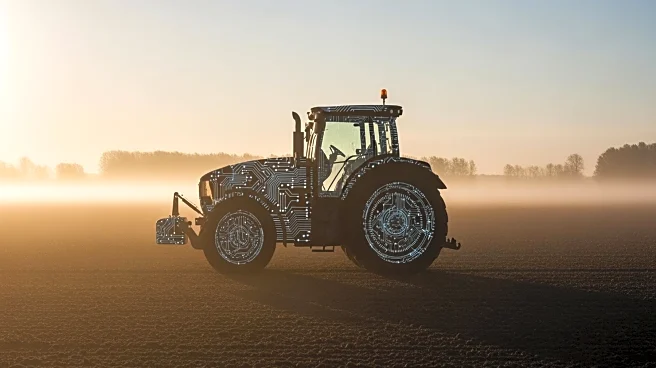What's Happening?
Monarch Tractor, a California-based startup, is facing legal challenges after Burks Tractor, a dealership in Idaho, filed a lawsuit alleging breach of contract and warranty violations. The lawsuit claims that Monarch's tractors, which were marketed as 'driver
optional' and autonomous, failed to operate as promised. Burks Tractor purchased ten tractors from Monarch, expecting them to be fully autonomous based on representations made during negotiations. However, upon delivery, the dealership found that the tractors did not perform autonomously, leading to significant operational issues. Monarch's sales team attempted to resolve these issues but ultimately failed, according to the complaint. The lawsuit, initially filed in Idaho state court, has moved to federal court, adding to Monarch's recent troubles, including layoffs and a pivot towards software and tech licensing.
Why It's Important?
The lawsuit against Monarch Tractor highlights the challenges and risks associated with the commercialization of autonomous technology in agriculture. If the allegations are proven, it could impact Monarch's reputation and financial stability, potentially affecting its ability to innovate and compete in the autonomous farming equipment market. The case underscores the importance of delivering on technological promises, as unmet expectations can lead to legal and financial repercussions. For the broader industry, this situation may prompt increased scrutiny on claims made by companies regarding autonomous capabilities, influencing regulatory standards and consumer trust in emerging technologies.
What's Next?
As the lawsuit progresses in federal court, Monarch Tractor may face increased pressure to address the alleged deficiencies in its products. The company might need to provide evidence of its tractors' capabilities or negotiate settlements to mitigate potential damages. The outcome of this case could influence Monarch's strategic direction, possibly accelerating its shift towards software and tech licensing. Additionally, other stakeholders in the autonomous farming sector may closely monitor the case, potentially adjusting their own practices and claims to avoid similar legal challenges.

















